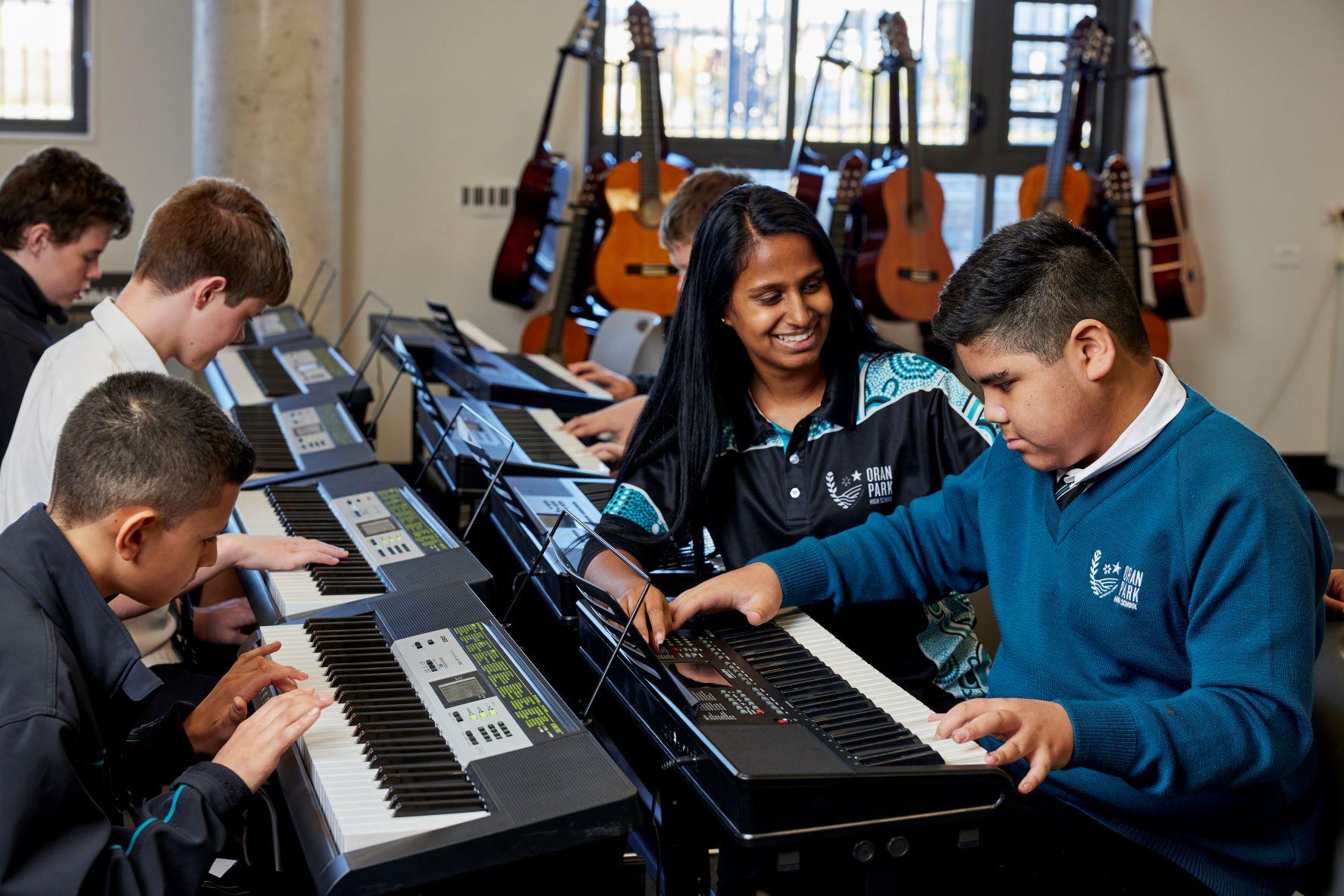Example of practice - Noah
Noah is a conscientious year 8 student who works quietly in class. He enjoys reading a range of literature, spends his spare time drawing, and enjoys subjects that involve creativity, such as art and creative writing. Noah is on the autism spectrum, and also has a diagnosis of Attention-Deficit/Hyperactivity Disorder (ADHD) – presenting as inattention. Classroom environments that are noisy, busy, stimulating, or distracting can disrupt Noah’s ability to complete work, and cause him distress.
Noah finds planning and organising his workload and individual tasks challenging, and tends to avoid starting tasks until the last minute. This has resulted in key assessments being handed in late, or missed altogether. Noah can find decisions stressful, particularly when there are more than 3-4 options to choose from.
Noah has a personalised learning and support plan, however this is due to be reviewed and updated. This example of practice will outline how Noah’s school and family worked together to support Noah’s voice and agency when revising his personalised learning and support plan.
What is the goal?
The goal is for Noah to have an active role in his learning, including in setting the goals, supports and strategies that will support his learning and inclusion at school. This means that Noah’s voice, preferences and experiences are positioned as central to all decisions made. Noah’s participation in personalised learning and support planning is optimised and actively increased over time through supports and strategies that a) are adapted for his strengths, communication style, and abilities, and b) ensure he feels safe, confident, and valued.
What are Noah’s preferences for his involvement in learning and support planning?
The learning and support team use the Planning tool for promoting student agency within planning personalised learning to develop a clear understanding of Noah’s preferences for his involvement in learning and support planning. From this, they can see that:
Noah does not want to attend meetings. Noah thinks attending meetings will be boring, and he feels uncomfortable sharing his ideas in front of a big group.
Noah is however comfortable attending shorter meetings with 1-2 people he knows well – a parent, and a specific learning and support team leader.
Noah also shows an interest in sharing his ideas visually, and in using email to communicate.
What do we know about Noah’s strengths, abilities, communication style, interests and strategies that have been helpful and that may be relevant for Noah’s involvement in learning and support planning?
Noah is conscientious and likes to please others. While this is a strength for Noah in some areas, it can also, at times mean that Noah will defer to authority figures, such as teachers and parents, instead of advocating for his own ideas or preferences.
Noah has strong literacy skills.
Noah enjoys engaging in creative activities.
Noah prefers a quiet, low stimulation environment.
Supports with organisation, planning and task initiation can help Noah with managing his commitments and completing tasks.
Noah can be supported to make decisions through the provision of 2-3 options.
Noah listens and engages best in short (i.e. 10min) blocks of time.
Noah engages well with 2-3 adults who have developed rapport with him.
What evidence-informed strategies can be used to reach the goal?
The learning and support team used the Student agency within planning personalised learning and support guide to learn more about evidence-based strategies and resources that support student agency. After using this resource, the learning and support team identified some strategies that can be trialled to build on Noah’s existing strengths and help achieve the desired goal. They collaborate with Noah to understand his preferences for putting these strategies into action:
| Relevant strengths and insights |
Strategies |
|
While Noah was initially reluctant to attend meetings, he is comfortable with the following suggestions:
|
|
To develop an understanding of Noah’s goals, ideas and preferences during these short meetings, collaborate with and support Noah with implementing the following strategies:
|
|
Once the ‘visual story’ is completed, Noah will be supported to help draft the personalised learning and support plan, and meeting agenda:
|
|
|
|
|
School Excellence Framework alignment
Wellbeing
Effective classroom practice
Australian Professional Standards for Teachers alignment
Standard 1: Know students and how they learn
Audience
Secondary teachers
Purpose
This example of practice can be used to inform school planning and teaching practice
Timeframes and when to use
This resource can be used at any time to provide further information and practice guidance
Evidence base
This resource was developed with the AllPlay Learn team who conducted a series of systematic reviews of the empirical literature, with over 177,000 articles screened. The resources remain up-to-date, with content reflecting best practice reviewed by a world-class multidisciplinary research team, led by Monash University.
Reviewed
June 2022. Share your feedback here
